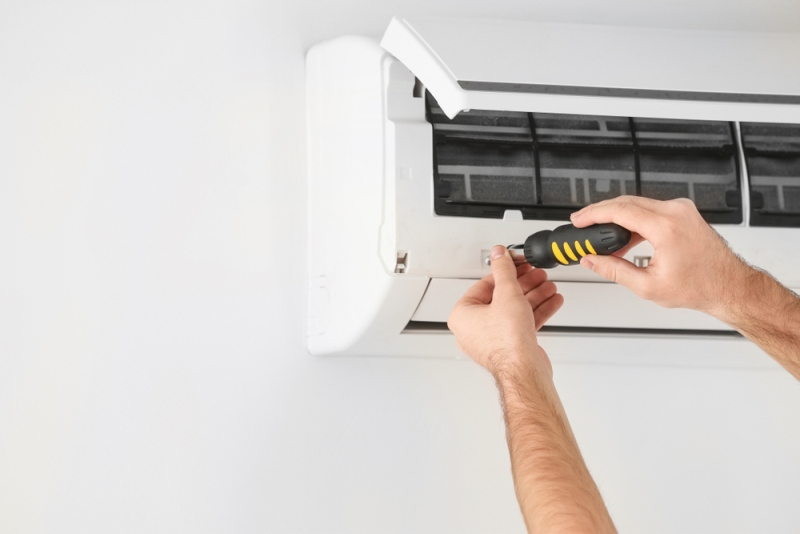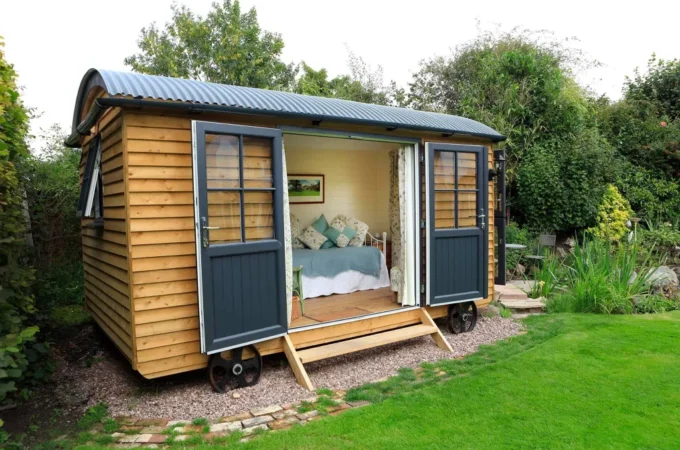
Stay Cool: The Ultimate Guide to Air Conditioner Maintenance
Do you want to make sure that your home’s air conditioner lasts for as long as possible? Do your best to maintain it on a regular basis.
On average, most air conditioners only last people for between 10 and 15 years. But you should be able to get anywhere from 12 to 15 years of life out of an air conditioner that is well-maintained.
It’s not all that difficult—or expensive!—to do air conditioner maintenance, either. As long as you’re willing to put some effort into it every so often, you can maintain your air conditioner properly and keep it humming for years to come.
Not sure about what you’ll need to do to maintain your home’s AC better than you are now? Here are some air conditioning tips that should help. They’ll make AC maintenance a breeze and add a lot of life to your AC over time.
Sweep Debris Away From Your AC Unit After a Long Winter
When you’re using your AC unit throughout the spring, summer, and fall, there shouldn’t be too much debris that gathers around it. But throughout the late fall and winter, there will be all kinds of debris that will congregate around your AC unit.
You will, of course, find leaves all around your AC unit. You’ll also find sticks and stones surrounding it. And in some cases, you might even spot garbage in the general vicinity of your AC unit.
The closer that these things get to your AC unit, the greater the chances of them working their way inside of it. This could cause lots of issues with your AC over time. It might not be able to expel humidity from your home as effectively as it would be able to otherwise.
By simply sweeping the area around your AC unit and getting rid of as much debris as you can, you’ll make your entire AC system work better.
Make Sure the Pad for Your AC Unit Stays Level

The AC unit for your home’s AC system should sit on top of a concrete slab right outside your home. It’ll usually be located either on the side or in the back of your house.
When this concrete slab is first put into place, it’ll be nice and level for your AC unit. But over time, it could start to sink into the ground a little bit, and when it does, it’ll make your AC unit crooked. This could impact your AC unit more than you might realize.
If you ever see the concrete slab for your AC unit starting to slide down into the ground, do something about it. It’s one of the more underrated steps you should take while performing AC unit maintenance.
Get Into the Habit of Replacing Your AC’s Air Filter Early and Often
It’s obviously important to do air conditioner maintenance on your AC unit outside. But it’s also important to maintain the parts of your AC system located inside your home.
Start with the air filter that sits in your home’s HVAC system. It plays a key role in the overall well-being of your HVAC system since it’s responsible for filtering dust, allergens, and other contaminants out of the air in your home as it passes through your HVAC system.
If you run your air conditioner with a dirty air filter in place, it’s going to circulate dirty air through your home. It’s also going to have to work a heck of a lot harder than it should have to in order to keep cool air moving around in your home.
Keep the Condensate Drain Line for Your AC Clear
Have you ever seen water pooling underneath your home’s furnace when your air conditioner is turned on? Contrary to what some people might think, this is a big deal.
More often than not, the water is an indication that you have a clogged condensate drain line in your AC system. You’ll need to unclog it
ASAP to stop water from leaking under your furnace.
This water often contains a lot of potentially harmful bacteria in it. That bacteria is one of the things that causes a condensate drain line to clog in the first place. By keeping this line clear, you can stop it from wreaking havoc on your home.
Look for Other Things That Could Cause Your AC to Leak
When your furnace has water pooling under it while your AC is running, it’s usually a clear-cut sign that you have a clogged condensate drain line. But there are also a couple of other things that could cause your AC system to leak when it’s turned on.
For instance, you may have a cracked drain pan on your hands. A drain pan is positioned under your evaporator coil to collect condensate.If it’s cracked, the moisture it collects will start to leak.
You may also have a clogged air filter on your hands if your AC is leaking inside your house. It could cause your evaporator coil to
freeze, which will result in a lot of water dripping off of it and overwhelming your drain pan.
Whatever you do, don’t ignore any leaks involving your AC system. You could end up doing a lot of damage to it if you don’t make the necessary repairs.
Set Up a Smart Thermostat to Control Your AC
Is your air conditioner running almost all the time in the summer? You might have an older thermostat hooked up to it that doesn’t shut it down at all throughout the course of a hot day.
To get around this problem, consider hooking a smart thermostat up to your AC system this year. With a smart thermostat, you’ll be able to control your air conditioner from anywhere in the world.
You can leave your AC off for most of the day and then turn it on when you’re on the way home from work. You can also control your AC while you’re on vacation or on a business trip so that your AC can keep your home cool without running all day long.
Place Plywood Over Your AC Unit at the End of Every Summer

At the end of the summer, there are a lot of people who buy a big tarp and cover their AC unit up completely. They think they’re doing the right thing for it when they do this.
But in reality, they could be putting their AC unit into harm’s way by taking this approach to covering it up. Moisture can still find its way into an AC unit that’s wrapped up tight with a tarp, and once it’s in, it’ll stay there all winter long and cause certain parts of an
AC unit to rust.
Pests can also find their way into an AC unit that’s wrapped up tight with a tarp. When they do, they’ll sometimes chew through electrical wires and bring a bunch of debris into the AC unit with them. This will lead to the AC unit not working right the following spring.
Rather than covering your entire AC unit with a tarp at the end of the summertime, place a piece of plywood on top of it with a weight to hold it down. The plywood will provide your AC unit with enough protection without inviting moisture and pests inside.
Bring in a Professional to Help With Air Conditioner Maintenance Once Every Year
You can do almost all of the air conditioner maintenance that we’ve mentioned here on your own without any help from an HVAC specialist.
But unless you have extensive professional experience working on HVAC systems, you should bring in a specialist at least once a year for AC unit service.
Most homeowners choose to do an AC spring tune-up with help from the pros. They’ll hire an HVAC company to come and inspect their AC system prior to the start of summer so that it’s all ready to go.
If you haven’t gotten yourself into the habit of doing this yet, change that as soon as you can. You should be welcoming an Air Conditioning Repair Denver CO into your home to service your AC system at least once every year, if not more often than that.
Start Taking AC Maintenance More Seriously Than You Do Now
At some point, you’re going to have to replace your home’s air conditioner, and it’s going to cost a pretty penny. Regular AC systems are going for between $3,000 and $4,000 these days on average. Super efficient ones can go for even more than that.
You can put off having to pay this kind of money for a new AC system by performing air conditioner maintenance regularly. Follow the tips listed here to keep your AC system in great shape year in and year out.
Would you like to learn more about maintaining, repairing, and installing an air conditioner in your home? Browse through all the AC articles that we have on our blog to find out just about everything you could ever want to know about doing these things.




